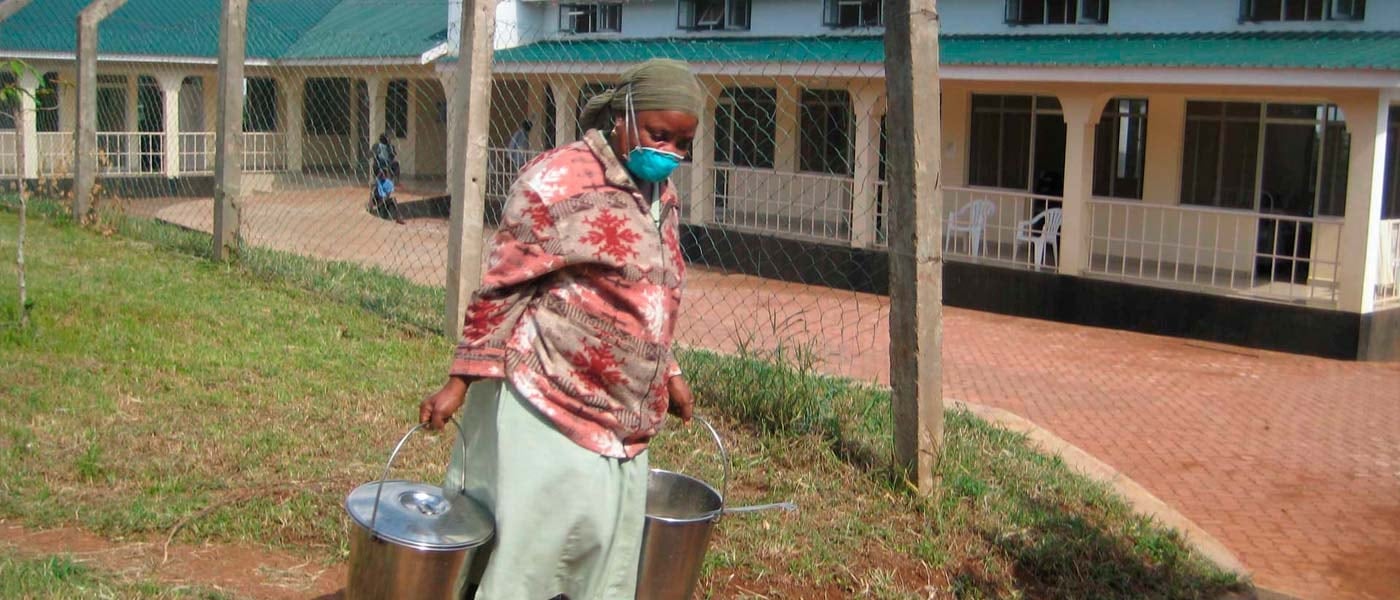
Kibong'oto Infectious Disease Hospital
Kibong'oto Infectious Disease Hospital (KIDH) is a specialised public reference hospital for the treatment of infectious diseases.
KIDH has a long history as an institution for the treatment of tuberculosis. It was established as a sanatorium in 1926, before antibiotics were available to treat tuberculosis.

Workers in the tanzanite mines are exposed to tuberculosis and pneumoconiosis. Nurse Robson Mmamari explains about infection and the symptoms.
The hospital is located in the Kilimanjaro region in northern Tanzania, near Kilimanjaro National Park and consists of a number of separate buildings fenced in in a green area.
In 1952, when Tanzania was still an English colony, the KIDH became the national tuberculosis hospital. In 2010 the hospital received approval from the World Health Organisation (WHO) to be responsible for all treatment of patients with multiresistant tuberculosis (MDR-TB) in Tanzania.
There are certain prerequisites with regard to quality that must be met in order to treat multiresistant tuberculosis. The disease is both difficult and costly to treat, and the course of treatment is long. Approval by the WHO was therefore a vote of confidence in the hospital’s employees.
Read more about resistant tuberculosis.
Tuberculosis and HIV
The KIDH also treats many patients with tuberculosis and HIV from the local area and from the mining district in Mirerani. The hospital is also responsible for protection against infectious diseases and it cooperates across the border to Kenya. Therefore, they were involved in emergency preparedness plans during the Ebola outbreak in 2014.
Read more about co-infection, HIV and tuberculosis.
The hospital has a separate department that works with involving the local community. We cooperate here on measures to reduce the risk of infection and on the tuberculosis problems in the mining area, and former patients are involved in public education.
Own partnership
LHL International started a pilot project for cooperation with the KIDH through the agreement with the municipality of Temeke. Many of the MDR-TB patients come from Dar es Salaam, and therefore this was a natural extension of the cooperation.
Over time, this cooperation has developed into an independent partnership with KIDH related to health communication, prevention of infection and patient-friendly measures. We also have a “three-party collaboration” with a specialist from the World Health Organisation, and we have made several exchange visits to the hospital in Latvia where she works.
The patients at the KIDH have long stays, far away from their family and local community. The treatment is a major physical stress, and the medicines can be “toxic” to the body. If they are not closely monitored, they can sustain permanent nerve damage that will affect hearing, vision and internal organs. It is therefore important to have a professionally strong environment that can provide close follow-up, at the same time as giving patients access to activities that can divert their attention from the disease and the treatment.
